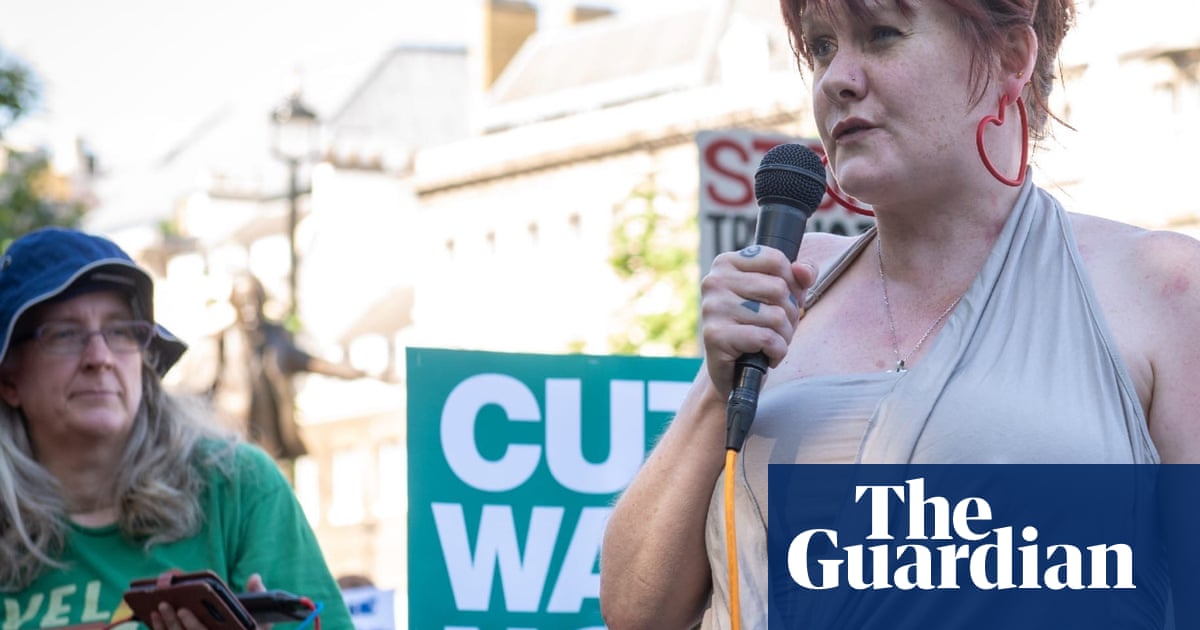When Tim Boxall went to the protest outside Westminster on the eve of the welfare reform vote, he knew the 32 degree heat would exacerbate his multiple sclerosis. But he felt he had to be there.“The hour train here and the heat will cause me spasms, pain, fatigue, and set off motor and vocal tics,” he says. “It’ll take days bedbound to recover, but if we don’t fight our own corner, who will?”Boxall, 50, has received the personal independence payment (Pip) for a decade and calls it a “lifeline”, particularly since he had to give up work as a credit controller for a high street bank. The benefit bought the wheelchair he’s using today. “It pays for care but also things that give me a life, not just an existence.”
When news of the government’s win off the back of a major climbdown on Pip reached him, Boxall felt “disappointed” but “not disheartened”. “The patchwork of desperate, last-minute face-saving concessions, legislating on the fly is an absolute embarrassment,” he says.
“This isn’t a U-turn. It’s more smoke and mirrors,” according to Ellen Clifford from the campaign group Disabled People Against Cuts. “They might have bought votes with promises of co-producing the Pip review but how can we trust a government like this?”“Let’s not forget that the huge universal credit cut for new claimants remained in the bill unchanged,” she added. “It makes a mockery of any claims to be protecting vulnerable people.”Sarah Finnegan, housebound with severe ME,has been watching the chaos leading up to the vote at home after “months of intense fears” over losing her benefits. The 44-year-old, who asked to use a pseudonym out of worry people might not believe her illness, relies on Pip to pay carers who cook, clean and shop for her alongside her elderly parents.She’s a single mother to her five-year-old daughter and is “desperate” to be well enough to go back to work as a counsellor. “Without [Pip], I genuinely don’t know how I’d survive – how I’d keep my child warm and fed,” she says. “I’m housebound and can’t physically access a food bank.”With the Pip changes now delayed and contingent on a major review in autumn 2026, Finnegan is suspicious of the claim disabled people’s input will be genuinely taken on board.
Charlotte Hughes says: “If the main aim of the government is to cut costs to ‘put disability benefits on a more sustainable footing’ then what are the chances of disabled people being really listened to when the Pip criteria are rewritten? The cruelty [of this legislation] is unlike any I’ve seen in recent history.”The 52-year-old, who is unable to work due to fluid on the brain as well as anxiety and depression, has to get by on the health component of universal credit. “As a disabled person, it’s already difficult to survive. We’ve already cut back on everything that we can and we can’t cut back any more.”Despite the government’s last-minute changes, Hughes says “it’s a dark day” for the disabled community. “We expected it from the Tory party. ButLabourwere elected because of their promises to make positive changes. I didn’t vote Labour for cruelty and the continuation of Tory party policy. It’s unforgivable.”As he heads home, Boxall is “drained” and “resentful” of the months of stress he and other disabled and sick people have faced.“As a community, we’ve been put through a mental and physical wringer,” he says. “My health is at the worst I’ve known them. But we carry on fighting because it’s our lifeline at stake. Now, I start days of recuperation.”
